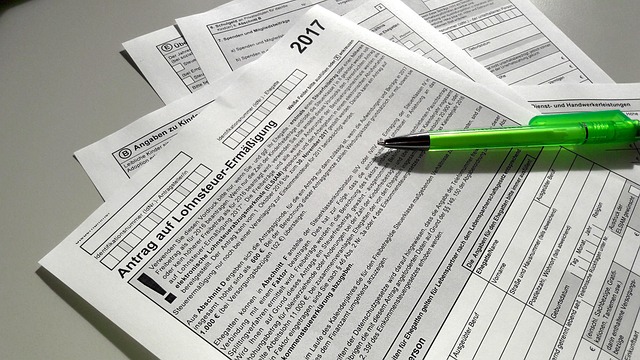Mastering Tax Efficiency: Comprehensive Estate Planning for Blended Families

Blended families face unique challenges in tax and estate planning due to varied family dynamics. Ef…….
Tax-Efficient Estate Planning: A Comprehensive Guide
Introduction
Estate planning is a critical aspect of financial management that ensures an individual’s assets are distributed according to their wishes after death, while also minimizing taxes and other expenses. Tax-efficient estate planning takes this a step further by strategically arranging an individual’s affairs to minimize the tax liabilities that can erode the value of the estate. This article delves into the nuances of tax-efficient estate planning, its global impact, economic implications, technological advancements, and the regulatory framework that governs it. We will explore the challenges it faces, present case studies, and finally, look at its future prospects.
Understanding Tax-Efficient Estate Planning
Tax-efficient estate planning involves a series of actions and decisions designed to reduce or defer taxes on assets passed down to heirs. It encompasses a variety of strategies, including the use of trusts, gifting, and charitable contributions. The core components include understanding the tax laws applicable to estates, identifying assets that are subject to estate taxes, and employing legal structures and tools to minimize the tax burden.
The historical context of estate planning dates back to ancient times when the transfer of wealth was a matter of succession laws. Over time, as tax systems evolved, so did the strategies for efficient estate planning. Today, it is a complex field that requires expertise in tax law, asset management, and often, international law due to the global nature of modern estates.
Global Impact and Trends
The influence of tax-efficient estate planning is felt worldwide as high-net-worth individuals (HNWIs) increasingly seek to manage their legacies across borders. Global trends indicate a rise in cross-border estate planning due to the presence of multiple jurisdictions, the mobility of assets, and the desire to leverage different legal systems for tax advantages.
In the United States, for example, estate taxes are a significant concern for many. In Europe, countries like the UK have specific rules regarding inheritance tax, while civil law jurisdictions like those in continental Europe often have different approaches to succession planning. Asia is seeing a growth in wealth, which has led to an increase in demand for estate planning services.
Economic Considerations
From an economic standpoint, tax-efficient estate planning can have profound effects on asset distribution and economic stability within families and communities. It can influence investment patterns as individuals may choose certain types of assets or investments that are more favorable from a tax perspective. These decisions can affect market dynamics, particularly in markets where wealth concentration is high.
Moreover, the role of tax-efficient estate planning within an economy extends to its potential for stimulating philanthropy and charitable giving, which can have positive social impacts and contribute to economic development.
Technological Advancements
Technology has revolutionized estate planning through the use of software that models various scenarios and their tax implications. Blockchain and smart contracts offer new ways to manage assets and ensure the execution of wills without the need for traditional legal processes. Artificial intelligence (AI) can analyze vast amounts of data to optimize estate plans for tax efficiency.
The future potential of technology in this field is immense, with advancements like AI-driven financial planning tools becoming more sophisticated and accessible. These technologies can provide personalized advice and automate complex administrative tasks associated with estate management.
Policy and Regulation
The legal landscape for tax-efficient estate planning is shaped by a complex array of policies, regulations, and legislative frameworks. Tax laws are subject to change due to political shifts, economic conditions, and demographic changes. International agreements like the EU Succession Regulation can also affect how estates are managed across borders.
Understanding the regulatory environment is crucial for anyone involved in estate planning. It requires staying abreast of changes in tax codes, trust laws, and other legal instruments that influence the field.
Challenges and Criticisms
Tax-efficient estate planning faces several challenges, including the complexity of tax laws, the potential for tax avoidance or evasion, and the ethical considerations surrounding wealth concentration. Critics argue that aggressive tax planning can undermine the intention of tax laws and result in inequality.
To address these issues, professionals in the field advocate for transparency, adherence to legal boundaries, and a focus on ethical practices. Actionable solutions include advocating for clearer and more stable tax regulations, promoting education about responsible estate planning, and utilizing technology to enhance accountability and compliance.
Case Studies
Several case studies illustrate the successful application of tax-efficient estate planning. One such example is the use of family limited partnerships (FLPs) in the United States to manage and value assets for estate tax purposes. Another is the strategic use of life insurance policies within trust structures to provide liquidity for estate taxes while minimizing the taxable estate. These studies highlight the importance of tailored strategies that align with an individual’s financial goals and legal requirements.
Future Prospects
The future of tax-efficient estate planning is likely to be shaped by demographic trends, technological advancements, and changes in tax laws. Potential growth areas include the rise of digital assets and cryptocurrencies, which present new challenges for estate planners. Emerging markets may also see an increase in demand for estate planning services as wealth continues to grow in these regions.
Conclusion
Tax-efficient estate planning is a dynamic and multifaceted field that plays a critical role in the management of wealth across generations. It requires a deep understanding of tax laws, legal structures, and economic trends, as well as an ongoing commitment to ethical practices and professional development. As the global landscape continues to evolve, so too will the strategies and tools employed by estate planning professionals to ensure that individuals can effectively manage their legacies in a tax-efficient manner.
(Note: This content is for informational purposes only and does not constitute legal or financial advice. Always consult with a professional for personalized advice.)

Blended families face unique challenges in tax and estate planning due to varied family dynamics. Ef…….

Estate planning with tax advantages leverages strategic lifetime gifting to minimize inheritance tax…….

Estate tax laws can be complex, affecting asset distribution and leaving beneficiaries unsure about…….

Estate planning involves strategic financial decision-making to minimize future tax burdens, with ch…….

Succession and wealth transfer require strategic estate planning with tax advantages to minimize cap…….

Estate planning involves strategic charitable giving for tax benefits, preserving and growing wealth…….

Estate planning with tax advantages strategically manages and distributes assets post-passing to min…….

Trusts serve as robust tools for maximizing tax efficiency in asset management, offering significant…….

Estate tax calculations are notoriously complex due to fluctuating regulations. Digital solutions au…….

Trusts are powerful legal tools for asset management and liability protection, offering significant…….